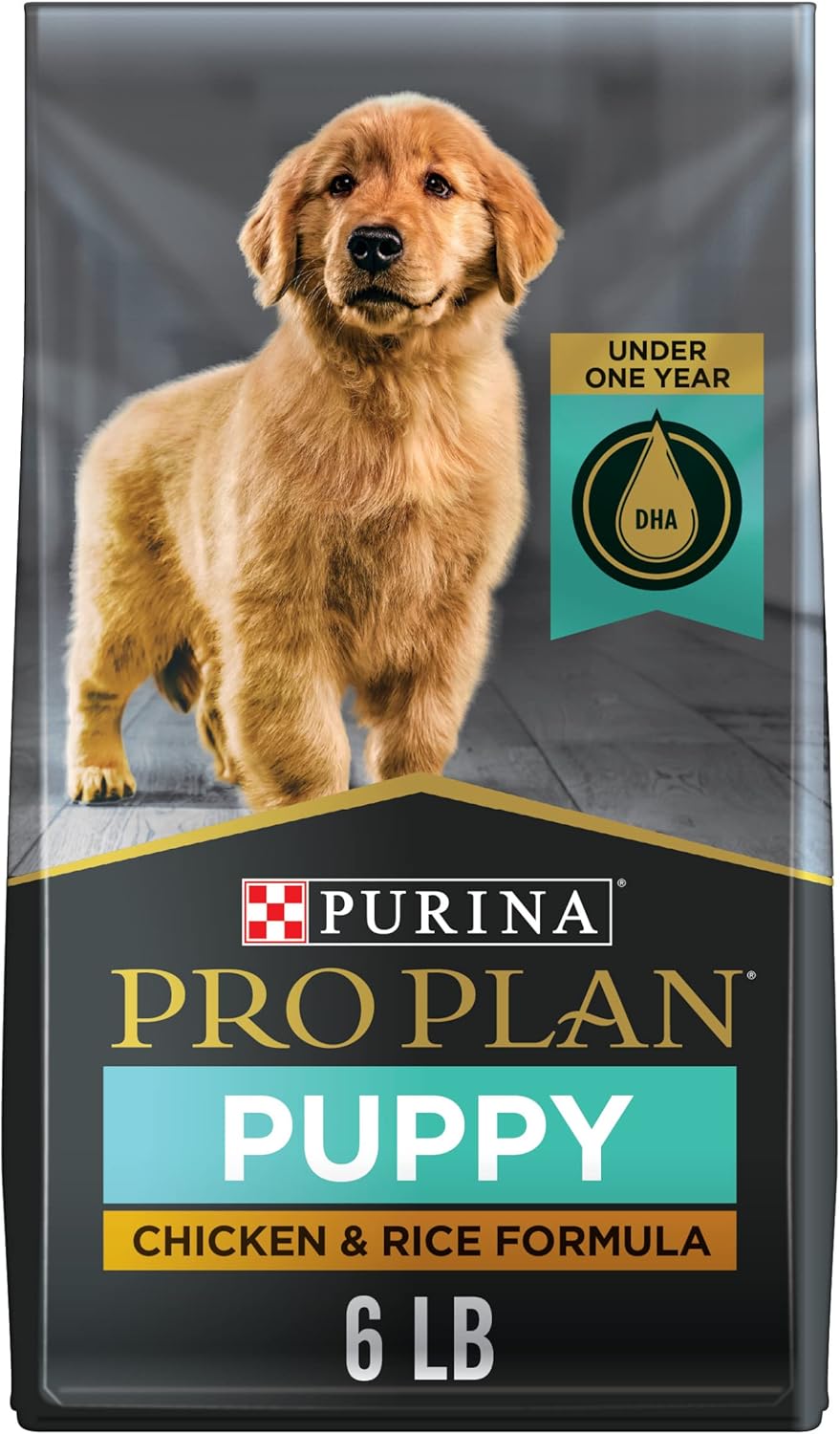









Price: $19.98 - $15.98
(as of Apr 14, 2025 09:57:05 UTC - Details)
The Ultimate Guide to Finding the Best Puppy Dog Food
Introduction
Choosing the best puppy dog food is one of the most important decisions you'll make as a pet owner. A proper diet is crucial for your puppy’s growth, health, and happiness. With so many options available, it can be overwhelming to figure out what’s right for your furry friend. In this guide, we’ll break down everything you need to know about selecting the perfect puppy food, covering key factors and long-tail keywords such as “nutritional needs for puppies,” “best puppy food for large breeds,” and “grain-free puppy food options.” By the end of this article, you’ll be well-equipped to make an informed decision for your new companion.
Understanding Nutritional Needs for Puppies
When it comes to puppy food, understanding their nutritional needs is essential. Puppies require a balanced diet rich in proteins, fats, vitamins, and minerals to support their rapid growth. Look for foods that list meat as the first ingredient. This ensures that your puppy is getting the necessary protein for muscle development and overall health.
Additionally, puppies need a higher calorie intake compared to adult dogs. This is because they are constantly growing and developing. It’s important to choose a puppy food that is specifically formulated for their life stage. These foods are designed to meet the unique needs of growing pups, ensuring they receive all the essential nutrients.
Best Puppy Food for Large Breeds
If you have a large breed puppy, selecting the right food is crucial. Large breed puppies grow at a different rate than smaller breeds and require a specific balance of nutrients to prevent health issues. Look for large breed puppy food that has controlled levels of calcium and phosphorus. This helps support healthy bone growth and reduces the risk of developmental disorders.
Additionally, large breed puppy food often has a higher fiber content, which can aid in digestion and help maintain a healthy weight. Brands like Blue Buffalo and Royal Canin offer formulas specifically designed for large breed puppies, providing the right balance of nutrients for their growth.
Grain-Free Puppy Food Options
Grain-free diets have become increasingly popular among dog owners. Many people believe that grain-free puppy food is healthier and can help prevent allergies. While some dogs do have grain sensitivities, it’s essential to consult with your veterinarian before switching to a grain-free diet.
When looking for grain-free options, make sure the food contains quality ingredients. Look for high-quality proteins and healthy fats, as well as fruits and vegetables that provide essential vitamins and minerals. Brands like Taste of the Wild and Merrick have great grain-free puppy food options that are both nutritious and tasty.
Best Puppy Food for Sensitive Stomachs
Some puppies have sensitive stomachs and may require a special diet. If your puppy experiences frequent digestive issues, it’s crucial to choose a food that is easy to digest. Look for puppy food that contains limited ingredients and is free from artificial additives and fillers.
Opt for formulas that include probiotics, as these beneficial bacteria can aid in digestion and promote a healthy gut. Brands like Hill’s Science Diet and Purina Pro Plan offer sensitive stomach puppy food options that can help alleviate digestive issues while still providing the necessary nutrients for growth.
Homemade Puppy Food vs. Commercial Puppy Food
Many pet owners consider making homemade puppy food to ensure their furry friend receives the best nutrition. While homemade meals can be beneficial, it’s essential to do thorough research and consult with a veterinarian to ensure that the diet is balanced and meets all of your puppy’s nutritional needs.
Commercial puppy food is often formulated by pet nutrition experts and is designed to provide all the essential nutrients in the correct proportions. If you choose to make homemade food, remember to include a variety of protein sources, vegetables, and carbohydrates to create a well-rounded diet.
Transitioning to Adult Dog Food
As your puppy grows, you will eventually need to transition them to adult dog food. This transition should occur around 12 months of age for most breeds, but larger breeds may take longer. Gradually mixing adult food with puppy food over a week or two can help ease the transition and prevent digestive upset.
Choosing a high-quality adult dog food is just as important as selecting puppy food. Look for brands that continue to prioritize quality ingredients and balanced nutrition to support your dog’s ongoing health.
Conclusion
Selecting the best puppy dog food is a critical step in ensuring your puppy lives a long, healthy, and happy life. By understanding their nutritional needs, considering breed-specific options, and exploring various food types like grain-free and sensitive stomach formulas, you can make an informed choice. Remember to consult with your veterinarian for personalized advice, especially if you’re considering homemade food or transitioning to adult dog food. With the right puppy food, you’ll set the foundation for a thriving and joyful companion.
In summary, prioritize your puppy's health by choosing the best puppy dog food tailored to their unique needs. By doing so, you’ll be giving your furry friend the best start in life!
DHA from omega-rich fish oil nourishes brain and vision development
High quality protein builds lean muscles, with chicken as the first ingredient
Antioxidants support a puppy's developing immune system
Highly digestible formula for optimal nutrient delivery
Calcium, phosphorus and other minerals build strong bones and teeth
